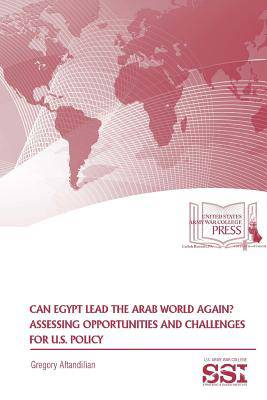
- Afhalen na 1 uur in een winkel met voorraad
- Gratis thuislevering in België vanaf € 30
- Ruim aanbod met 7 miljoen producten
- Afhalen na 1 uur in een winkel met voorraad
- Gratis thuislevering in België vanaf € 30
- Ruim aanbod met 7 miljoen producten
Zoeken
Can Egypt Lead The Arab World Again? Assessing Opportunities And Challenges For U.S. Policy
Gregory Aftandilian
Paperback | Engels
€ 22,45
+ 44 punten
Omschrijving
Egypt has long been a leader of the Arab world or at least aspired to be one at various times in its modern history. This leadership quest stems from its position as the most populous Arab country centered in the heart of the region, its geography nestled between the Mediterranean and Red Seas with the vital Suez Canal connecting them, its closeness (literally and figuratively) to the Israeli-Palestinian scene, and its relative proximity to the Gulf region. Moreover, Egypt boasts longstanding intellectual centers (religious and secular), has an educated strata of respected professionals, as well as a highly competent diplomatic corps and military establishment. Since 2011, however, Egypt has generally focused inward as it had to cope with turbulent political and economic developments arising in large part because of the fallout from the Arab Spring. It is currently facing a number of challenges, such as a stubborn terrorism problem that is chiefly based in the Sinai region, and economic austerity measures.
Specificaties
Betrokkenen
- Auteur(s):
- Uitgeverij:
Inhoud
- Aantal bladzijden:
- 80
- Taal:
- Engels
Eigenschappen
- Productcode (EAN):
- 9781387583355
- Verschijningsdatum:
- 9/02/2018
- Uitvoering:
- Paperback
- Formaat:
- Trade paperback (VS)
- Afmetingen:
- 152 mm x 229 mm
- Gewicht:
- 127 g

Alleen bij Standaard Boekhandel
+ 44 punten op je klantenkaart van Standaard Boekhandel
Beoordelingen
We publiceren alleen reviews die voldoen aan de voorwaarden voor reviews. Bekijk onze voorwaarden voor reviews.











